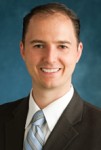 As an academic, I view myself as an empiricist. I find data from experimental research most compelling. Though theory is foundational to all inquiry, theory tested and applied to a variety of contexts is where theory takes life, gains nuanced insight, and finds its real value.
As an academic, I view myself as an empiricist. I find data from experimental research most compelling. Though theory is foundational to all inquiry, theory tested and applied to a variety of contexts is where theory takes life, gains nuanced insight, and finds its real value.
As with academic inquiry, I believe spiritual inquiry requires much more than passive “armchair theologizing.” Someone who is serious and sincere about wanting to learn spiritual truth must be willing to conduct applied experiments. With regard to inquiry about God and the truthfulness of the restored Gospel of Jesus Christ, relying only on mental processing of evidence alone leads to an inevitable stalemate, leaving us exactly where I believe God wants us to be—dependent on learning in a way that requires us to sincerely seek Him, draw close to Him, to apply what we are learning, and become something more than we are.
Unfortunately, this is a path that some will not accept because it is harder. The Savior said, “If any man will do [God’s] will he shall know of the doctrine whether it be of God or whether I speak of myself” (John 7:17). Doing and knowing are interconnected with regard to gaining knowledge of God or anything related to the real questions of life. Trying to apply, even if imperfectly, the principles or truth we are seeking to understand is how we show “real intent” (Moroni 10:4) and the promised fruit of the Gospel is experienced (i.e., blessings, peace, soul expansion, bridling of our lesser selves, and the Holy Ghost’s confirmation). Armchair theologizing will never bring this type of learning. Principles and doctrines must be lived to know their value and the value of their source.
So, when I say that I know that the restored Gospel (The Church of Jesus Christ of Latter-day Saints) and the Book of Mormon are true this knowledge has come both from spiritual confirmation of the truthfulness of these things through the power of the Holy Ghost and from my attempts to apply these principles in the laboratory of life. The observed results for me have been conclusive. The promised blessings for Gospel principles have consistently accompanied their application.
Through my experiences, I am particularly thankful for the marvelous freedom that comes from living the Word of Wisdom, the comprehensive and clear answers to the fundamental questions of life (“Where did I come from?”, “Why am I here?”, and “Where am I going?”), and the blessings of having a system of living and belief that enables the “better angels of our natures” (Abraham Lincoln) to be the dominant and expressed force in one’s life. I am deeply thankful for the renewing and cleansing power of the Atonement of Jesus Christ, and the restored Gospel’s enriching influence on family life. I am very thankful for the knowledge I have that God, our Heavenly Father, lives. He hears us, loves us, is anxious to help us, and wants us to choose to return to Him. I know He sent His Son Jesus Christ to be our Redeemer and that God speaks to man today, personally and through ordained prophets.
————————————
Bradley P. Owens is an associate professor of Business Ethics at the Marriott School of Business at Brigham Young University. He received his B.A. in Marriage, Family, and Human Development at Brigham Young University (2002); his Masters of Public Administration at Brigham Young University (2004); and his Masters and Ph.D. in Organizational Behavior at the University of Washington (2007, 2009); and held a post-doctoral research fellowship at the University of Michigan (2009-2011). He has published research on relational energy, work-life balance, and the impact of humility on individual performance, team processes, and in the role of leadership.
Posted September 2012
Updated April 2020
